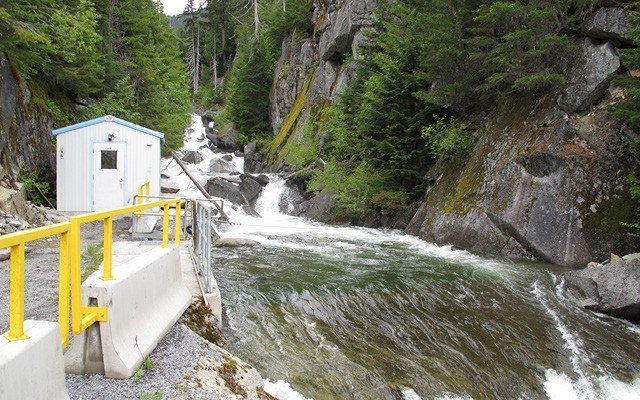An update to Whistler's Water Use and Conservation Bylaw that caused concern among residents and irrigation companies this summer is still a work in progress, and will be brought to council in February, according to the Resort Municipality of Whistler (RMOW).
A stakeholders meeting including irrigation companies, property managers and landscapers was held on Sept. 28, followed by an update to the Committee of the Whole on Oct. 17.
Some of the concerns heard over the summer included a potential negative impact on people's lawns and gardens, a lack of consultation, a lack of evidence for the proposed restrictions and a perceived lack of equity (in that RMOW parks staff and hotels were exempt from the bylaw), said Chris Wike, acting utilities manager, at the Oct. 17 meeting.
RMOW irrigation staff have since said they do not want to be exempt from any new regulations, Wike said.
In the case of hotels, they were never actually exempt, added general manager of infrastructure James Hallisey.
"It's just that there is some greyness in the wording, so some of them have assumed they are, and some have not," he said.
"I don't think that will ruffle too many feathers to say 'No, you have to abide by the rules.' We just need to be smart about how we set the rules up so that it works for everybody, and I think it appears to be there's room to make that happen."
An overview of the local water system and why conservation is necessary was provided at the Committee of the Whole.
Whistler's water system is made up of one surface water source (21 Mile Creek), 15 groundwater wells (two of which are inactive) and 15 reservoirs, Wike explained.
Expanding the local system would not be a simple task, and would cost tens of millions of dollars.
"I've done a lot of research and exploration for ground water and it's very slim pickings out there," Wike said.
"Expansion of existing well fields is limited by the Environmental Assessment requirement, and if we want to look farther down the road to much larger sources like Cheakamus River or a local lake, filtration plant and disinfection for a project like that would be very, very expensive."
There is one water project currently on the books — the Spring Creek Booster Station (estimated at $2.5 million).
"It's not new supply, but it allows us to bring an excess of supply in the Cheakamus Crossing area north towards the village," Wike said.
The RMOW hasn't been idle on water projects, he added, noting $18.8 million in infrastructure upgrades either completed, underway or planned in recent years, including the Alpine Water Main Replacement Project, the Singing Pass Reservoir and the Emerald UV disinfection station.
"None of those projects add new supply," Wike said. "They do allow us to move current water supply from zone to zone, but they don't add to the total available water."
The issue of water conservation was heightened by the province's fire season — the worst on record in B.C. — and a Sept. 1 demand from the province that industry, agriculture and residential water users in the southwestern corner of the province (Whistler included) cut back on water use by 30 per cent.
There's also a provincial requirement from 2009 that says 50 per cent of new municipal water needs must be supplied by conservation measures by 2020 — failure to do so could effect future grant applications, Wike noted.
In terms of local water usage, gross water consumption over the last nine years has been increasing at 1.2 per cent, while water use per person per day has declined to 459 litres (compared to a target of 425 litres per day and the Canadian average of 329 litres/day).
But Whistler's highest consumption comes in the summer months, driven by irrigation and the use of once-through water-cooling systems.
"We don't have all the data to separate those two things, but clearly, if we can take the top off that summer peak, our water system is in good shape," Hallisey said.
To reduce water usage, the RMOW will also look to regulate once-through cooling and reduce leakage in the system in addition to updating the bylaw.




